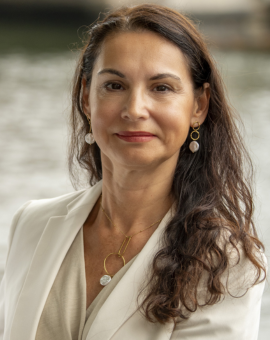UN Secretary-General issues stark warning about the fragility of democracy

A few weeks away from the one year anniversary of the Russian invasion of Ukraine, and in a stark warning that the clock is the “closest it has ever stood to humanity’s darkest hour”, United Nations Secretary-General Antonio Guterres’ annual 2023 speech to the UN General Assembly, placed the value, fragility and complexity of democracy at the heart of his message, both explicitly and implicitly.
The value of democracy for a more sustainable, inclusive and peaceful world was stressed by Guterres, bypassing the indirect rhetoric on Sustainable Development Goal 16, when reminding the General Assembly that “freedom of expression and political participation constitute the essence of democracy”, as well as inclusive societies and economies. He reminded the Assembly of the “ambitious and audacious” nature of the UN Charter and the Universal Declaration of Human Rights, which this year celebrates its 75th anniversary, as the guiding pillar of the UN’s work, and stressed the “inherent dignity and equal and inalienable rights of all members of the human family as the foundation of freedom, justice and peace”, urging countries to “take inspiration from its spirit and its substance”. He referred to the need for self-correction and for an end to the scourge of war, which democracies are inherently better at than non-democracies.
We know that open debate, a free media, a vibrant civil society and the replacement of political representatives through free and fair elections are all elements that enable democracies to better self-correct and change course compared to other regime types. Returning to the ravaging effects of wars, in Ukraine and elsewhere, he also implicitly warned of the dangers of authoritarianism, not just for democracy, but also for global peace.
He also emphasized the importance of gender equality for sustainable peace and development and raised concerns about the long way ahead for achieving equality in all spheres of life. International IDEA’s Global State of Democracy data shows that democracy matters for gender equality--achieving the 2030 Agenda will therefore in this view, require both a more gender equal and more democratic world. A key message was also placed on the importance for youth and future generations to make their voices heard in shaping the Summit of the Future in 2024 and for more just and inclusive governance.
However, Guterres also issued a stark warning about the fragility of democracy in the current context. He warned about the retreat of democracy in many parts of the world and its damaging implications for civil and political rights, echoing similar findings as in International IDEA’s latest Global State of Democracy report. He raised concerns about increasing attacks on human rights defenders across the world. He warned about the need to address key drivers of democratic decline, including growing inequalities between have and have nots inside and between countries; the regression on many of the SDGs halfway to 2030; the increase in toxic polarization, hate speech and spread of disinformation enabled by digital platforms; and online and offline attacks on ethnic and religious minorities, refugees, migrants, indigenous people and the LGBTQI-plus. He also denounced the dangerous “caricaturing of diversity as a threat” and “weaponization of cultural differences” in political discourse, “driving divisions and sowing hate”, in a hint to populists around the world.
Guterres also highlighted the importance of key UN processes under his “Common Agenda” to address some of these challenges: a new Agenda for Peace; the formulation of a Global Digital Compact to develop a Code of Conduct for information integrity on digital platforms; and the SDG Summit 2023, as basis for shaping new social contracts.
Guterres however, also recognized the limitations of democracy in facing global challenges and called for the rethinking of democratic systems and their short-termism by what he called “a preference for the present; a bias for the short-term;… the next poll; the next tactical political maneuver to cling to power.” And he stressed the need for effective multilateralism to overcome some of these shortcomings.
Guterres’ speech was both an ode to the core principles of democracy and their importance for fulfilling the mission of the United Nations, while also stressing the need to rethink democracy for a new era, to ensure a sustainable future for our planet and future generations. The need for democracy to be a uniting force rather than a divider of people and of nations. The tasks ahead are challenging, but the solution lies, as the Secretary-General implicitly notes, not in more autocracy, but more and better democracy, in principle and in practice, at global, regional and country levels.




